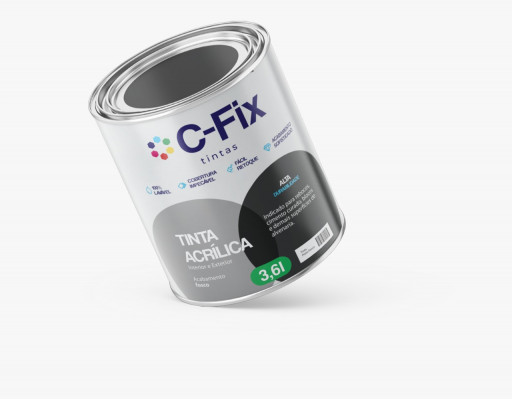SAO PAULO, June 21, 2022 (GLOBE NEWSWIRE) -- Gerdau Graphene, the nanotechnology company pioneering advanced graphene-enhanced materials for industrial applications, announced that it has created a new water-based architectural paint that is significantly more durable and resistant to abrasion than traditional paints. The new paint is ideal for use on concrete, cement, metal, and asphalt, such as on sidewalks, bicycle lanes, garages, staircases, sports courts, and a wide array of commercial and industrial areas. Its parent company, Gerdau, began applying the new paint to its factory floors in March, making it the world's first large-scale use of a water-based graphene-enhanced architectural paint. The company is already selling its proprietary graphene additives as development prototypes to major paint producers in the Americas. The announcement follows recent news that the company has developed new graphene-enhanced thermoplastics.
"This new graphene-based floor paint is extremely abrasion-resistant and requires less maintenance and repainting over its lifetime compared with traditional paints. Based on the performance gains of our new product, it's clear that graphene will have a transformational impact on the entire paint industry," said Alexandre Corrêa, CEO of Gerdau Graphene. "We are proud to have painted our specialty steel plant in São Paulo in March and have since moved to paint all our assets in Brazil in the coming months. In addition, we have commercialized this new paint for key clients and partners in the construction industry to paint industrial, commercial, and residential building floors. We will continue to optimize our additives to meet the needs of customers and scale commercialization of these paint products globally."
The development of the graphene-based paint started in December 2021 and is the result of a partnership with Grafftex, a Brazilian paint manufacturer, and Polystell, a company focused on research and development of chemical additives. Gerdau Graphene created the graphene technology used to disperse graphene into a paint additive. Because graphene comes in a variety of types and shapes, each of which has unique properties, significant research and testing was required to determine the best graphene format needed to produce a superior paint product. In addition, graphene additives need to be customized based on each paint manufacturer's unique formula and ingredients.
Gerdau Graphene is also working on additives for anti-corrosion paints, focusing on reducing heavy metals and fossil-based ingredients from light and heavy maintenance paints. In 2020, U.S. architectural paint consumption was approximately 850 million gallons, or roughly 60% of the total 1.4 billion gallons of paint sold. The U.S. architectural paint market size is expected to cross $15 billion by 2025. "Our plan is to pilot this coating in our own operations and then launch the new products commercially in early 2023," said Corrêa.
Graphene, considered to be the strongest material on Earth, is a one to ten atom-thick sheet of densely-compacted carbon that can be modified for various uses and added to industrial materials. Since its discovery in 2004, Graphene's extraordinary chemical, physical, electrical, thermal, and mechanical properties have captivated the world and led to its inventors winning the Nobel Prize. Graphene can be used to produce durable coatings that do not crack; are resistant to water, oil, and other liquids; and have antimicrobial, anticorrosive, and anti-UV properties.
About Gerdau Graphene
Gerdau Graphene is a nanotech company focused on the production, development, and commercialization of graphene-enhanced products including polymers, paints and coatings, rubber, and more. Launched in 2021 by Gerdau, the largest producer of long steel in the Americas, Gerdau Graphene enables businesses to harness the revolutionary properties of graphene to deliver industry-leading products. To learn more, please visit gerdaugraphene.com.
About Gerdau
With a history spanning 121 years, Gerdau is Brazil's largest steel producer, one of the leading producers of long steel in the Americas and of special steel in the world. In Brazil, it also produces flat steel and iron ore for its own use. It also has a new business division - Gerdau Next - focused on operations in steel-related segments. Guided by its purpose of empowering people who build the future, the company is present in nine countries and has over 36,000 direct and indirect employees in its operations. Gerdau is the largest recycling company in Latin America and uses scrap as an important input; 73% of the steel it produces comes from scrap. Every year, Gerdau transforms 11 million tonnes of scrap into a variety of steel products. The company is also the world's largest charcoal producer, with over 250,000 hectares of planted forests in the state of Minas Gerais. As a result of its sustainable production matrix, Gerdau currently has one of the industry's lowest average greenhouse gas emissions (CO₂e), of 0.90t/CO₂e per tonne of steel, which is about half the global industry average of 1.89 t/CO₂e per tonne of steel (worldsteel). By 2031, Gerdau's carbon emissions will decline to 0.83 t/CO₂e per tonne of steel.
Follow Gerdau Graphene
LinkedIn: linkedin.com/company/gerdau-graphene
Twitter: @gerdaugraphene
———
Media Contact
Aaron Endré
Endré Communications
gerdau@endrecommunications.com
Related Images

Image 1: Gerdau Graphene Water-Based Graphene Architectural Paint
This content was issued through the press release distribution service at Newswire.com.
Attachment
